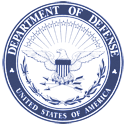Incorporated
Policy changes from this SAMM E-Change memo have been incorporated into the SAMM.
Note section has changed from C9.7.2.6. to C9.7.2.9.6.
 | DEFENSE SECURITY COOPERATION AGENCY | 3/5/2012 |
MEMORANDUM FOR :
DEPUTY UNDER SECRETARY OF THE AIR FORCE FOR INTERNATIONAL AFFAIRS
DEPUTY ASSISTANT SECRETARY OF THE ARMY FOR DEFENSE EXPORTS AND COOPERATION
DEPUTY ASSISTANT SECRETARY OF THE NAVY FOR INTERNATIONAL PROGRAMS
DIRECTOR, DEFENSE CONTRACT MANAGEMENT AGENCY
DIRECTOR FOR SECURITY ASSISTANCE, DEFENSE FINANCE AND ACCOUNTING SERVICE - INDIANAPOLIS OPERATIONS
DIRECTOR, DEFENSE INFORMATION SYSTEMS AGENCY
DIRECTOR, DEFENSE LOGISTICS AGENCY
DIRECTOR, DEFENSE LOGISTICS INFORMATION SERVICE
DIRECTOR, DEFENSE REUTILIZATION AND MARKETING SERVICE
DIRECTOR, DEFENSE THREAT REDUCTION AGENCY
DIRECTOR, NATIONAL GEOSPATIAL-INTELLIGENCE AGENCY
DEPUTY DIRECTOR FOR INFORMATION ASSURANCE, NATIONAL SECURITY AGENCY
DIRECTOR, MISSILE DEFENSE AGENCY
SUBJECT :
Policy Update Regarding Use of Foreign Military Financing (FMF) Funds - DSCA Policy 12-03 [SAMM E-Change 194]
REFERENCE :
- United States Department of State Cable 11 STATE 115764, "Guidance on the Use of FMF to Purchase Certain Articles", November 21, 2011
The current budget environment has resulted in increasing scrutiny of all foreign assistance accounts and more stringent oversight by Congress of how FMF funds are being used. The Department of State (DOS) Bureau of Political Military Affairs (STATE/PM) has initiated a series of reviews of global FMF in order to provide official guidance on FMF implementation issues. The referenced identifies equipment requiring detailed discussion between DOS and the Defense Security Cooperation Agency (DSCA) before it may be purchased using FMF and details the specific information that must be provided as a basis for these discussions. This memorandum updates Department of Defense (DoD) policy to comply with the new guidance from DOS and applies to FMF used for standard Foreign Military Sales (FMS) cases and Direct Commercial Contracts (DCCs). It does not affect DSCA's management of FMF administrative accounts nor does it apply to Packing, Crating, Handling, and Transportation (PCH&T) costs associated with equipment transferred to partner nations via the Excess Defense Article (EDA) program
Security Cooperation Organizations (SCOs) should initiate an early dialogue with STATE/PM and DSCA Country Program Directors and should generally discourage partner nations from using FMF funds for the following items:
- Petroleum, oil, lubricants, and fuel, other than for DOS-funded training events or related to the procurement and initial set-up of new equipment
- Resupply of small caliber ammunition (i.e., .50 cal and below), other than for formal DOS-funded training events or initial acquisition with new weapons systems
- Food
- Office supplies
- Routine clothing/uniform items, other than those necessary for coalition or peacekeeping deployments
- Gym equipment (except for rehabilitation purposes)
- Care of animals
- Construction and refurbishment projects that are not integral to the provision of a broader package of military articles
- Headquarters support services, including janitorial services, academic research, personal computers, printers, and accessories; generic software and software maintenance
- Support for non-U.S.-origin equipment and systems
- National budget support, including salaries.
When a partner nation proposes to use FMF for any of the above listed items, SCOs should submit a detailed justification and rationale for purchasing each to the DSCA Country Program Director and the STATE/PM Regional Officer. The justification should include the request item; the policy justification for providing with FMF funds vice host-nation funds; the estimated cost of procurement and delivery; and any other supporting information. In certain circumstances DOS may authorize the purchase of these items using FMF funds if it is determined providing such items is critical to the mission or relationship, or the defense articles or services are in direct support of coalition operations where U.S. forces are present.
The Security Assistance Management Manual (SAMM) E-Change clarifying the existing policy as it relates to restrictions on the use of FMF funds is attached. For any questions concerning this memorandum, please contact Mr. Chris Danielewski, DSCA-STR/POL, christopher.danielewski@dsca.mil, (703) 601-4368.
William E. Landay III
Vice Admiral, USN
Director
ATTACHMENT :
As stated
CC :
STATE/PM-RSAT
USAFRICOM
USCENTCOM
USEUCOM
USNORTHCOM
USPACOM
USSOCOM
USSOUTHCOM
USTRANSCOM
USASAC
USACE
SATFA TRADOC
NAVICP
NETSAFA
AFSAC
AFSAT
MDA
DISAM
ATTACHMENT 1
Security Assistance Management Manual (SAMM), E-Change 194
Change SAMM Chapter 9, C9.7.2.6, to read as follows:
C9.7.2.6. Restrictions on the Use of FMF. Expenditure of FMF funds is subject to legal and policy restrictions. Security Cooperation Organizations (SCOs) must ensure that the foreign government is aware of U.S. policies for the use of FMS credit financing. SCOs should generally discourage partner nations from using FMF funding for those items identified in Table C9.T6. However, in certain circumstances these items may be permitted to be purchased with FMF funds if the State Department determines that providing such items is critical to the mission, the bilateral relationship, or if the defense articles or services are in direct support of coalition operations where U.S. forces are present. SCOs should initiate an early discussion of requests to use FMF funds with DSCA (Operations Directorate) and State PM. To facilitate review of these requests, SCOs should submit a detailed justification and rationale for purchasing each item with FMF funds rather than host-nation funds and any other relevant facts in support of the request. This guidance applies to FMF used for standard Foreign Military Sales (FMS) cases and Direct Commercial Contracts (DCCs). The guidance does not affect DSCA management of FMF administrative accounts nor does it apply to Packing, Crating, Handling, and Transportation (PCH&T) costs associated with equipment transferred to partner nations via the Excess Defense Article (EDA) program.
Table C9.T6. Generally Restricted Items for Purchase with FMF
Defense Articles and Services that should not be Purchased with FMF |
|---|
|
